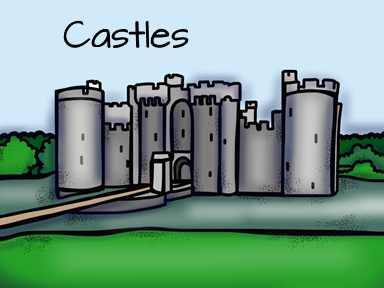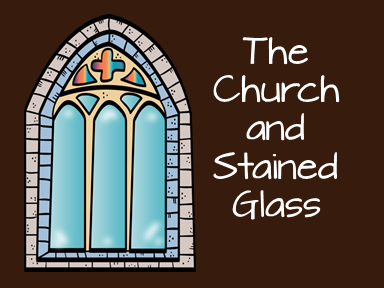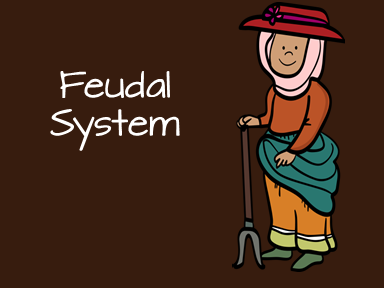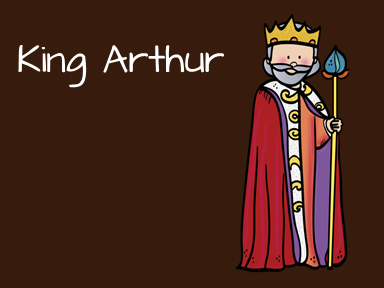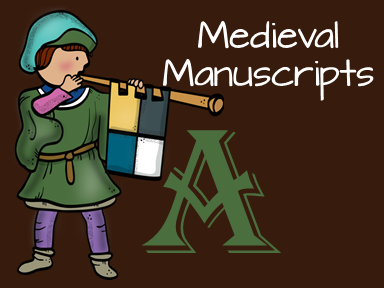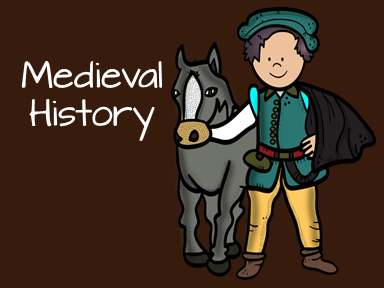 he time after the fall of Rome in 476 AD to about the year 1500 is known as the Middle Ages in European history. The first half of this period is often referred to as the Dark Ages. This name came about because many of the towns that existed during the time of the Roman Empire disappeared. Along with the loss of towns the way of life changed. During this time tribes began to invade the Roman Empire. Some tribes overran England. These tribes came from Northern Germany across the English Channel. Soon they mixed with the people living in England and everyone was speaking Anglo-Saxon.
he time after the fall of Rome in 476 AD to about the year 1500 is known as the Middle Ages in European history. The first half of this period is often referred to as the Dark Ages. This name came about because many of the towns that existed during the time of the Roman Empire disappeared. Along with the loss of towns the way of life changed. During this time tribes began to invade the Roman Empire. Some tribes overran England. These tribes came from Northern Germany across the English Channel. Soon they mixed with the people living in England and everyone was speaking Anglo-Saxon.
At about the same time some German tribes moved to Aachen on the Rhine River. These Germans traveled back and forth from Aachen to the south in what is now France and conquered lands. After a time the kingdom had a king called Pepin the Short. He conquered even more land. In 742 AD Pepin the Short and his wife had a son. The son grew up to be Charlemagne, meaning Charles the Great.
Charlemagne

Charlemagne conquered even more lands than his father did until his kingdom included the entire area which is now France. Charlemagne and the Pope made a promise to support each other. In 800 AD Pope Leo III crowned Charlemagne the Emperor of the Western Roman Empire. They were trying to bring back the old Roman Empire.
Charlemagne not only had a great military force, but he also pushed the arts. He built a collage in Aachen. Charlemagne encouraged scholars and poets. He could read both German and Latin, although he never learned to write. Christianity spread due to Charlemagne's influence.
The Vikings
The Vikings started invading Europe long after the Germans. The came from Norway, Sweden, and Denmark to loot then return home. They had long thin boats that moved by sails and oars. These boats could moved easily down rivers. The Vikings quickly developed the hit and run technique of raiding using these boats.
After a time the Vikings set up two bases in Europe. These bases were used as winter quarters. One of the bases was in Normandy, France and the other was in western England. In both places the Vikings mixed with the people living in these areas.
William the Conqueror

Years later in the ninth century a duke from Normandy decided he wanted to become King of England. In 1066 Edward the Confessor, the King of England, died leaving no heir. William of Normandy believed that he should have the throne because Edward's mother was Norman.
Harold, Earl of Essex, also claimed the throne. William planned to invade England and take the throne from Harold. William built a fleet of ships. These ships had only one small sail. William waited all summer for the wind to be right to blow these small sailed ships to England. He had to wait all the way to September. William landed on a sandy beach in southern England with 6000 mounted knights and about the same number of foot soldiers.
While William was sailing to England Harold and his army were fighting off the Vikings in a major battle at Stamford Bridge. Harold won. He then had to rush his army to meet William. They meet on October 14, 1066 at Hastings. The battle was fierce. Harold was killed and William became King of England.
William declared England his. He kept several large estates for himself. He gave many Norman barons and knights who helped him huge fiefs. He also gave land to Norman bishops and abbots. As a result the English earls and nobles had their land taken away. With these land grants the feudal system was firmly established in England.
The Magna Carta

John of England signs Magna Carta.
In 1215 the nobles were able to get King John to sign the Magna Carta. The Magna Carta said that a noble had to be tried before a jury. Before 1215 the king could hold a secret trial if he thought a noble was getting too strong. The king would find the noble guilty and have him beheaded.
The Magna Carta also said the king could not start new taxes unless the nobles agreed. The king began to call his nobles together to discuss taxes. Pretty soon the nobles were meeting all the time. This group of men became known as Parliament.
The Magna Carta greatly limited the power of the king.
Other rights were given to the people. One was the right to have bail set by a judge. This allowed a person to wait for a trial at home. Englishmen were also given the right of privacy. Police must have a search warrant signed by a judge before entering a home. An accused person had the right to have a lawyer speak for him. Having a lawyer gave the accused man a better chance at a trail.
Traders, businessmen, and larger farmers wanted a voice in the government as well. At first they sat with the nobles. Then they sat separately. This created two houses- the House of Lords and the House of Commons. After a long struggle between the Parliament and the king over power the Parliament finally won. This was the beginning of Democracy.

